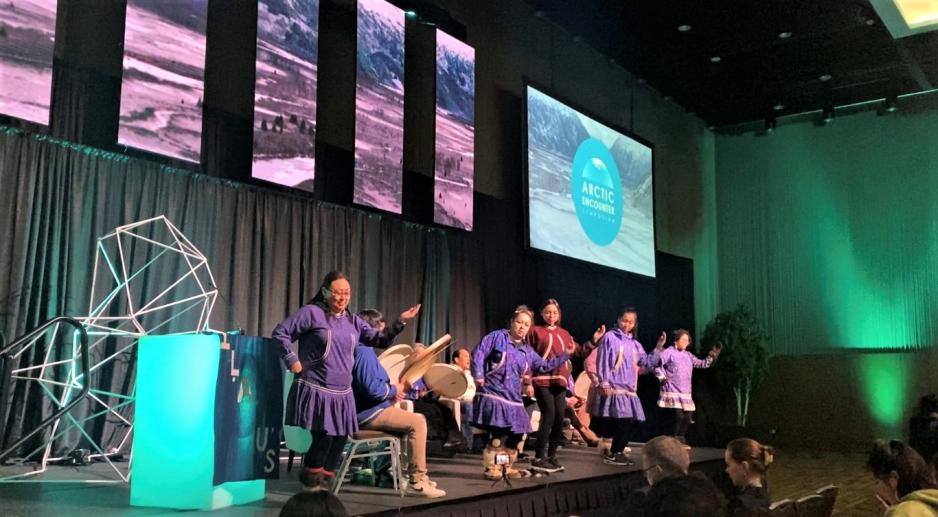Newsletter: The Arctic as Seen From Alaska

Dance and Drumming Performance by Iḷaku’s Dance Group, Arctic Encounter 2023. (Photo: Trine Jonassen)
Anchorage, Alaska: Dear reader. Diplomats have made the pilgrimage to Alaska to talk about the Arctic Council this week. That is no simple task - neither the journey nor the conversation. Here is the week that passed from the north
Norway is taking over the chairship of the Arctic Council in May. This week, they presented the program for the coming two years and is now preparing to take up the baton from a banned Russia, an event that is historical in the history of the council.
Whoever we ask, we receive smiling answers that "This will be fine". "We agree". "We are planning a smooth transition." The somewhat stiff smiles remind me a bit of the horror film Smile...
"As a political meeting place between the East and the West, the Arctic Council is dead," writes Holm from Tromsø.
I myself have traveled south to 61 degrees north and am now based in Anchorage, Alaska, where the Arctic Council is this week's hot topic during the Arctic Encounter conference. Here, I can barely turn without running into a diplomat or others who represent the work of the council.
Or as was said during the welcoming speech; It is not easy to travel to Alaska, so that half of the Western diplomacy has made the trip is nothing short of impressive.
That says something about the significance of the council and the tension connected to the takeover. Not least within the Arctic congregation.
However, the conversation looks a bit different now. There is an aura of hope over the assembly and there is talk of "after the war" and how Norway is to resurrect the council again after the cooperation has lain fallow for over a year.
Editor-in-Chief Arne O. Holm also pays the conference participants a visit in this Friday's commentary. He asks them to remain seated, also after they have listened to their own lectures.
In a commentary, Researcher Gosia Smieszek asks what effect the war has had on the Arctic Council.
In addition, in this op-ed, one of Norway's leading researchers on the Arctic Council explains why it is important that the council survives.
But other things are also taking place in the Arctic, apart from the Arctic Council, even if it does not seem like it.
In Norway, there is a discussion about the Norwegian base and nuclear policy (Norwegian only) and a very interesting Russian future analysis highlights cooperation before conflict on Svalbard (Norwegian only).
It is safe to say that this week keeps on giving and it is not over yet. Find more to read at High North News.
On behalf of the editorial staff, I wish you a wonderful Easter!
Greetings from the 49th State, News Editor Trine Jonassen

